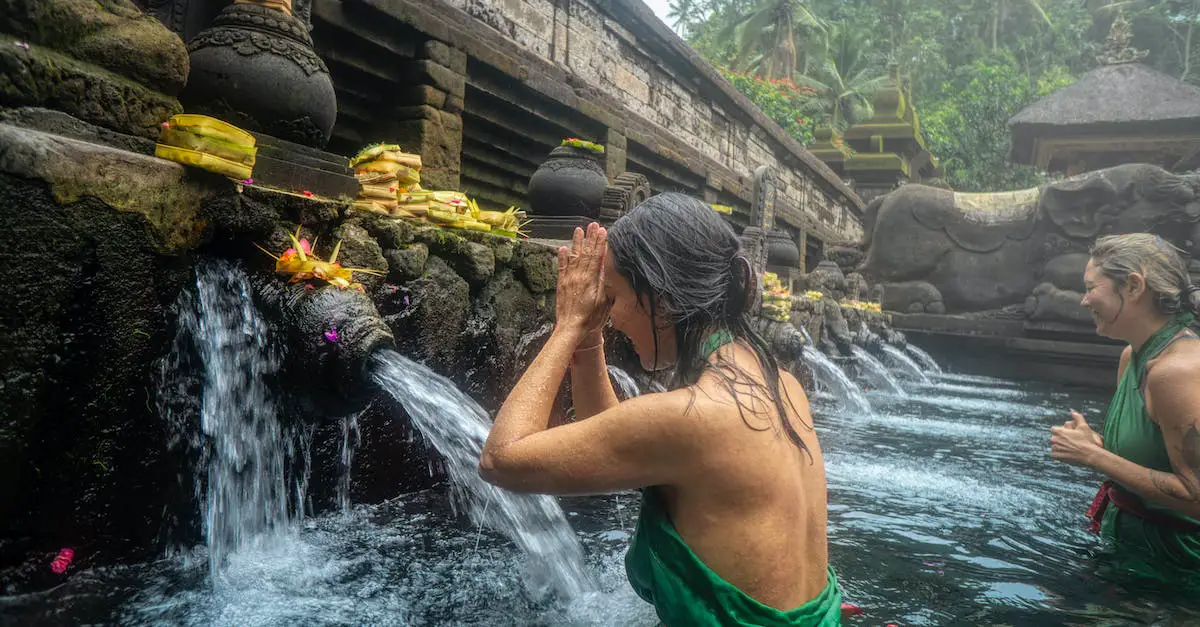HELLO THERE SPIRITUAL SEEKERS!
Are you tired of feeling like Charlie Brown on a bad day? Do you feel like you’re constantly searching for something more, something meaningful, something worth living for? Look no further, my fellow seekers! The answer lies in spirituality.
Now before you roll your eyes and think, “oh great, another lecture on finding inner peace,” hear me out. Spirituality is so much more than just finding inner peace. It’s about connecting with the universe, with nature, and with ourselves. It’s about finding purpose and meaning in our lives. And the best part? You don’t have to be religious to be spiritual!
Picture this: it’s a bright and early morning, the sun just peeking over the horizon. You step outside and take a deep breath of fresh air, feeling the cool breeze on your skin. You look around and notice the beauty in everything around you, from the flowers in the garden to the birds chirping in the trees. That feeling, that connection to nature and the universe, that’s spirituality.
So come join me on this spiritual journey, where we’ll explore the many facets of spirituality and how it can enrich our lives in ways we never thought possible. And who knows, maybe you’ll even find your own spiritual awakening along the way. Let’s do this!
Introduction to Spirituality

Spirituality is a term that can have a different definition for each individual. At its core, spirituality refers to one’s connection to something greater than oneself. This could be a connection to a higher power such as God, the universe, or nature. It could also be a connection to the inner self, a sense of purpose, or a higher consciousness.
For some, spirituality involves organized religion and practicing specific rituals or traditions. For others, it is a personal journey of self-discovery and growth. Regardless of your beliefs, spirituality can offer many benefits and contribute to a sense of overall well-being.
Here are some ways that spirituality can enhance your life:
- Increased sense of purpose: When you have a deeper understanding of your beliefs and values, it can provide clarity about your life purpose and direction.
- Greater emotional resilience: Spirituality can provide a source of comfort and strength during difficult times, helping you to cope with stress and adversity.
- Improved relationships: Connecting deeply with others, whether through religion or shared beliefs, can create a sense of community and foster positive relationships.
- Heightened sense of gratitude: Spirituality can encourage appreciation for the beauty and wonder of life, leading to a more positive outlook and increased feelings of gratitude.
Overall, spirituality can be a powerful force in our lives, providing a sense of purpose, strength, and connection to something greater than ourselves.
The Definition of Spirituality

- Definition: Spirituality refers to the search for a deeper meaning in life, the sense of connection to something greater than oneself, and a way of living that reflects this sense of purpose. It encompasses a wide range of beliefs and practices, including religious and non-religious approaches, and may involve meditation, prayer, self-reflection, and acts of service.
- Connection to self: One of the key aspects of spirituality is the connection to oneself. Through self-reflection, meditation, or other practices, individuals can gain a deeper understanding of their emotions, thoughts, and values. This can lead to greater inner peace, self-awareness, and a sense of purpose in life.
- Connection to others: Spirituality also involves a sense of connection to others. This may manifest through acts of service, charitable giving, or simply treating others with kindness and compassion. By focusing on the needs and well-being of others, individuals can cultivate a sense of empathy and community, and build more meaningful relationships.
- Connection to nature: Many forms of spirituality also emphasize a connection to the natural world. This can involve spending time in nature, appreciating its beauty and complexity, and recognizing our place within it. By fostering a sense of reverence for the environment, individuals can develop a deeper awareness of the interconnectedness of all life and their responsibility to protect and preserve it.
- Personal transformation: Spirituality is often associated with personal transformation and growth. Whether through religious conversion, self-help programs, or other forms of conscious living, individuals may seek to improve their lives by developing greater self-awareness, overcoming personal obstacles, and living in alignment with their values.
Overall, spirituality encompasses a broad range of beliefs, practices, and values, all of which center around the search for meaning, purpose, and connection in life. By cultivating a deeper sense of self-awareness, empathy for others, and reverence for nature, individuals can develop a richer, more fulfilling life experience.
The Different Aspects of Spirituality

1. Personal Connection: Spirituality is about cultivating and maintaining a personal connection with a higher power, whether it be God, the Universe, or something else entirely. This connection provides a sense of purpose and meaning in life, and can be achieved through prayer, meditation, or other spiritual practices.
2. Mind-Body Connection: Another aspect of spirituality is the recognition of the interconnectedness between the mind and body. It includes taking care of the body through healthy habits and practices, as well as nurturing the mind through mindfulness, meditation, and positive self-talk.
3. Compassion and Service: Finally, spirituality emphasizes the importance of compassion and service to others. It encourages individuals to look beyond themselves and focus on the well-being of others, whether it be through volunteering, donating to charity, or simply being kind to those around them.
Overall, spirituality is a multifaceted concept that encompasses various aspects of personal growth and connection with the world around us. By nurturing these different aspects, individuals can experience a sense of inner peace and fulfillment in their lives.
The Connection between Spirituality and Religion

The relationship between spirituality and religion is often misunderstood. While the two concepts are related, they are not interchangeable. Spirituality is a broader concept that encompasses an individual’s personal connection to the divine, while religion refers to the organized belief systems, practices, and rituals that are associated with a particular faith tradition.
However, many religious traditions do provide a framework for spiritual exploration and development. For example, practices such as prayer, meditation, and yoga can help individuals deepen their spiritual connection and explore their beliefs. Religious communities also offer opportunities for individuals to connect with others who share their beliefs, creating a sense of community and support.
At the same time, spirituality is not limited to those who identify with a particular religion. Many people describe themselves as spiritual but not religious, meaning that they have a sense of connection to the divine or universal consciousness but do not participate in a specific religious community.
Ultimately, the connection between spirituality and religion is a personal one that depends on each individual’s beliefs, experiences, and practices. Some people find spiritual fulfillment within a religious community, while others prefer to explore their beliefs on their own. What is most important is that individuals have the freedom to explore and develop their own sense of spirituality in a way that feels authentic and meaningful to them.
The Role Spirituality Plays in Personal Growth

- Understanding personal values: Spirituality can help individuals connect with their core values, allowing them to lead a more purposeful life. By being more conscious of their values, people can make better decisions that align with their beliefs and goals.
- Finding inner peace: Spirituality can help individuals find inner peace and calmness, even in difficult or stressful situations. This can lead to improved mental and emotional health, as well as greater resilience and ability to handle challenges in a positive way.
- Developing empathy: A spiritual practice can promote empathy and compassion towards others, leading to more fulfilling relationships and greater overall wellbeing. Understanding the interconnectedness of all living beings can also encourage individuals to be more mindful of their impact on the world and the people and creatures around them.
- Encouraging self-reflection: Practicing spirituality often involves self-reflection and introspection. This can increase self-awareness and help individuals identify areas of their life that may need improvement or attention. By regularly engaging in self-reflection, people can continuously grow and evolve on a personal level.
- Connecting with something greater than oneself: Spirituality often involves connecting with something greater than oneself, whether it be a higher power, nature, or the universe as a whole. This can provide individuals with a sense of purpose and meaning in their lives, as well as a feeling of belonging and connection to the world around them.
Overall, spirituality can play a crucial role in personal growth by helping individuals understand and connect with their values, find inner peace, develop empathy, engage in self-reflection, and connect with something greater than themselves. By incorporating spiritual practices into their lives, individuals can lead more fulfilling, meaningful lives and make positive contributions to the world around them.
How to Incorporate Spirituality into Daily Life

- Prioritize self-care: Prioritizing self-care is an essential aspect of incorporating spirituality into daily life. It involves taking the time to care for oneself physically and mentally, through practices such as exercise, meditation, and healthy eating. By taking care of oneself, one strengthens their connection with their spirituality as they become more attuned to their body and mind.
- Mindful living: Mindful living is being present and attentive to the present moment. It involves observing our thoughts and feelings without judgment, becoming aware of our surroundings, and acknowledging our emotions. By practicing mindful living, one becomes more aware of the world around them and their connection to it, which can lead to a deeper sense of spirituality.
- Gratitude practice: Practicing gratitude involves being thankful for the good things in life. This practice can involve keeping a gratitude journal or practicing gratitude meditation. By focusing on the good in life, one enhances their sense of appreciation and fulfillment, leading to a deeper sense of spirituality.
- Spend time in nature: Spending time in nature can be a powerful way to connect with one’s spirituality. Hiking, gardening, or simply walking through a forest can help one feel more connected to the natural world, bringing a sense of calm and tranquility.
- Connect with others: Connecting with others can deepen one’s sense of spirituality by fostering a sense of community and connection. This can involve joining a spiritual group, volunteering, or simply spending time with loved ones. By connecting with others, one strengthens their sense of purpose and belonging.
- Learn something new: Learning something new can be an enriching experience that leads to a greater sense of spirituality. This can involve taking a class, reading a book, or simply exploring a new hobby. By expanding one’s knowledge and skills, one enhances their sense of curiosity and wonder, leading to a deeper connection with their spirituality.
Conclusion
So, there you have it! A definition of spirituality that encompasses its vast and varied nature. Whether you meditate, pray, dance, sing, or simply find peace in nature, spirituality is all about finding meaning and purpose in life, and connecting with something greater than ourselves.
But let’s not take ourselves too seriously, now! Spirituality doesn’t have to be all meditation and incense. In fact, it can be downright fun! I once knew a woman who said she found God on the dance floor – and let me tell you, she could boogie like nobody’s business. And who doesn’t feel a sense of awe and wonder at the beauty of a sunset, or the majesty of the ocean?
So, whether you find your spirituality in a church, a temple, a yoga studio, or a rock concert, remember this: it’s all about finding joy, peace, and purpose in life. And that, my friends, is something to dance about!


